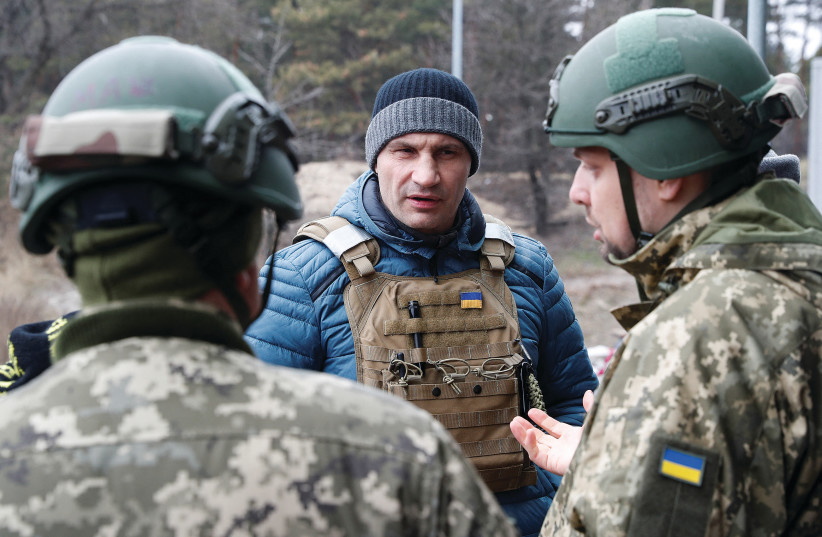Few reporters in Israel know Ukraine as well as Edward Doks, who lived in Vinnytsia on the River Bug until he was 16.
He arrived in Israel with his family in 1987 thanks to the Gorbachev reforms, six years after his parents’ first application to emigrate under Leonid Brezhnev. Homesick and enthused about the political developments in Ukraine, Doks returned in 1995 to record the excitement of reporting developments in what was now the newly independent land of his birth, using his acquired Hebrew to write for the Israeli press and to welcome Israeli tourists on intimate guided tours.
“I decided,” he said, “when I returned to Ukraine nearly 30 years ago, after my IDF service, that I would be a bridge between Israel and Ukraine.”
The book “was intended to be a guide book through peaceful Ukraine,” his publisher wrote; but Doks and Ukraine got more excitement than either bargained for. With a knack for making contact with ordinary people, celebrities and political leaders, Doks has produced a colorful compilation of photographs, political articles, travel pieces, and interviews over the past several years, especially the last one, for Ynet and Yediot Aharonot.
Yoram Dori, communications adviser to Shimon Peres, who consulted with Doks during the then former prime minister’s visit to Ukraine in 2001, describes him in a preface as having “incredible journalistic curiosity, interested in every little thing.”

A simple guide to Ukraine turns into an account of the war
Together they provide unique insight and perspective into the daily lives of Ukraine’s bewildered citizens, the expectations of its current political leaders, and its Jewish past and present in a country whose fate hangs on a hinge a year after Russia’s invasion has made Ukraine and its war for independence the focal point of international attention.
Doks interviewed Volodymyr Zelensky during his campaign for president in 2019 when he promised voters to reach an agreement with Russian President Vladimir Putin but told him, “Our future is with NATO and the EU.” He interviewed Kiev’s mayor, world boxing champion Vitali Klitschko, who said sports had toughened him against bullies. He befriended Marusya, a young right-wing militia activist who suggested Zelensky ought to immigrate to Israel.
“I was on the northern border on the eve of the war. It was pretty quiet, and I interviewed the defense minister [Oleksii Reznikov], who told me that 10 days earlier ‘we got a message from Belarus that it won’t be used to attack Ukraine.’”
Edward Doks
“I was on the northern border on the eve of the war,” says Doks. “It was pretty quiet, and I interviewed the defense minister [Oleksii Reznikov], who told me that 10 days earlier ‘we got a message from Belarus that it won’t be used to attack Ukraine.’”
Too bad. “The next day in Kyiv I saw roadblocks everywhere, streets and shops were empty, only the metro, where people were seeking shelter, was crowded. Fortunately, for me, living east of the Dnieper, missiles got only to the southwestern suburbs.” But getting from his apartment to a hastily convened press conference on the other side of the river, the cab fare had rocketed from 70 to 2,000 hryvnia [Ukrainian currency]. The war was on.
This is a true insider’s view of the Ukraine crisis.
The book can be acquired by phone/WhatsApp at 0549059394 or by email at avidan71@gmail.com.
Ukrainian Report in Hebrew
By Edward Doks
Oleg Fedorov Publishing House
119 pages; NIS 100
